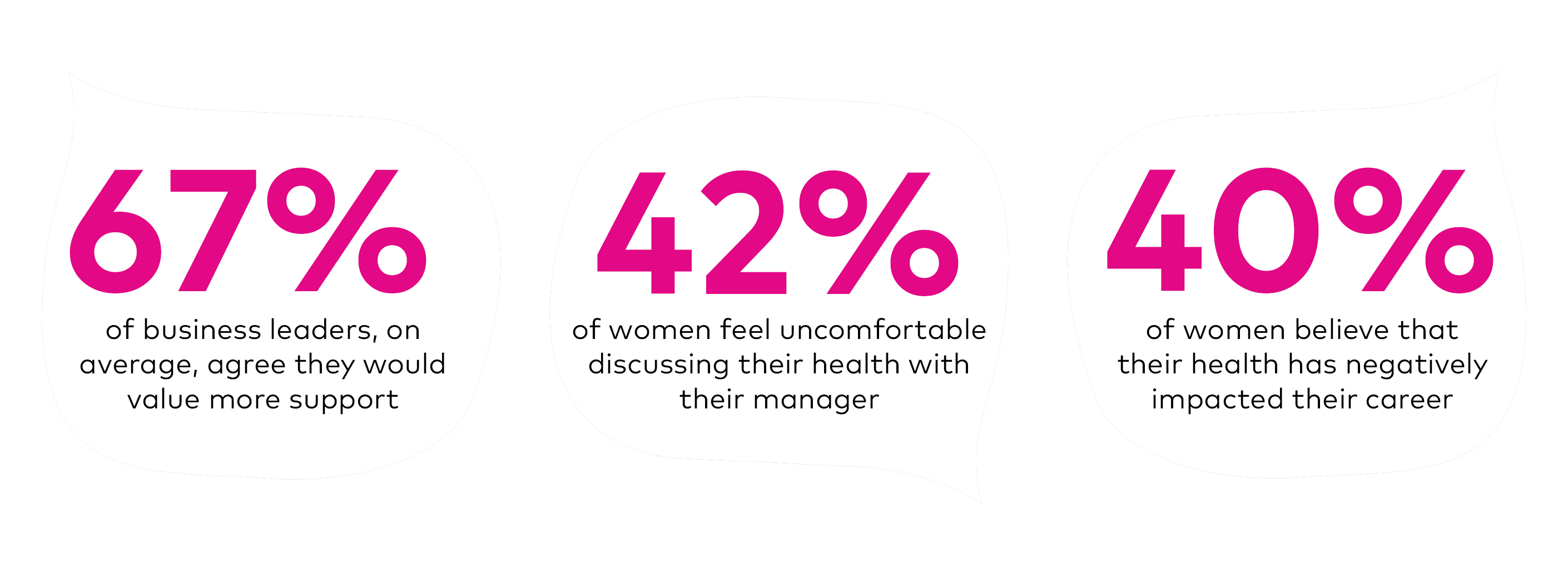Longer diagnosis times. Less access to services. And a widespread lack of knowledge and empathy for debilitating health issues. The Gender Health Gap defines the disparity within healthcare, specifically the poorer services and care received by women.
We've used first-hand research, gathering the opinions and experiences from thousands of UK women and both male and female employers, to really understand the barriers they face and delve into the impact the Gender Health Gap has on women in workplaces all over the UK. Because when we begin to understand the barriers, we can start to overcome them.

On average, women take nine days of annual leave to manage their health concerns, and more than a third of those surveyed have experienced anxiety in the workplace because of their health.
Our Gender Health Gap Guide for Businesses provides you with all of the above and more, including exclusive insight from our charity partners, The Fawcett Society.
Closing the gap doesn't just mean less absenteeism and improved productivity, it means building a long-term health and wellbeing culture. By laying the groundwork and implementing the policies and practises now, you can help to support women in the workplace for generations to come.
